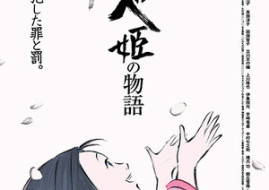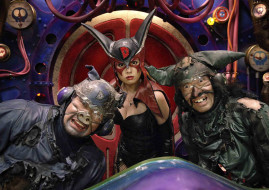Ran (1985)
AKA: Chaos
Director: Akira Kurosawa
Producer: Serge Silverman, Masato Hara
Writer: Akira Kurosawa, Hideo Oguni, Masato Ide (based on the play “King Lear” by William Shakespeare)
Cast: Tatsuya Nakadai, Akira Terao, Jinpachi Nezu, Daisuke Ryu, Mieko Harada, Yoshiko Miyazaki, “Peter”
Running Time: 160 min.
Plot: Based on Shakespeare’s “King Lear”, this epic, set in 16th century Japan, chronicles an aging ruler’s descent into madness after being betrayed by the sons to whom he has handed down his authority.
At nearly the end of one of the greatest careers in the movies, Akira Kurosawa produced this singular film, his only true masterpiece since Dodeskaden in 1970. It’s a movie that is hard to describe; it’s not actually a drama per se. Action doesn’t move the film. Rather, we see the results of the action, occasionally spying on the action itself like some sort of impartial observer in the sky.
Ran is more like a painting than a movie, with sterile visions of warriors charging across grassy fields in the middle of thunderstorms, smoke swelling out of palaces that are being laid siege to, a blind man playing flute to the tyrannical ruler responsible for his blindness. These scenes unfold as if static and unchanging. Yet the cumulative beauty of the movie has a tremendous impact: we seem to gaze at the swath of civilization, seeing it, as Kurosawa does, as a chaotic swirl of women and men warring in groups or by themselves, slaughtering each other regardless of personal relationships. There is no love or compassion in Ran-none that can endure, anyway. It truly represents it’s namesake: “ran” means “chaos” in Japanese.
The plot is identical to Shakespeare’s King Lear, with sons standing in for the three daughters. Tatsuya Nakadai turns in a brilliant performance as the king, who loses every object he has in the world and very nearly finds salvation because of it. Nakadai is as stunning as he ever was (with great performances in movie like Goyokin, Yojimbo, High and Low, Sanjuro, The Wolves, Harakiri, and others under his belt, this is a formidable task), almost grasping the things he finally realizes are important to him÷almost, but not quite.





















